
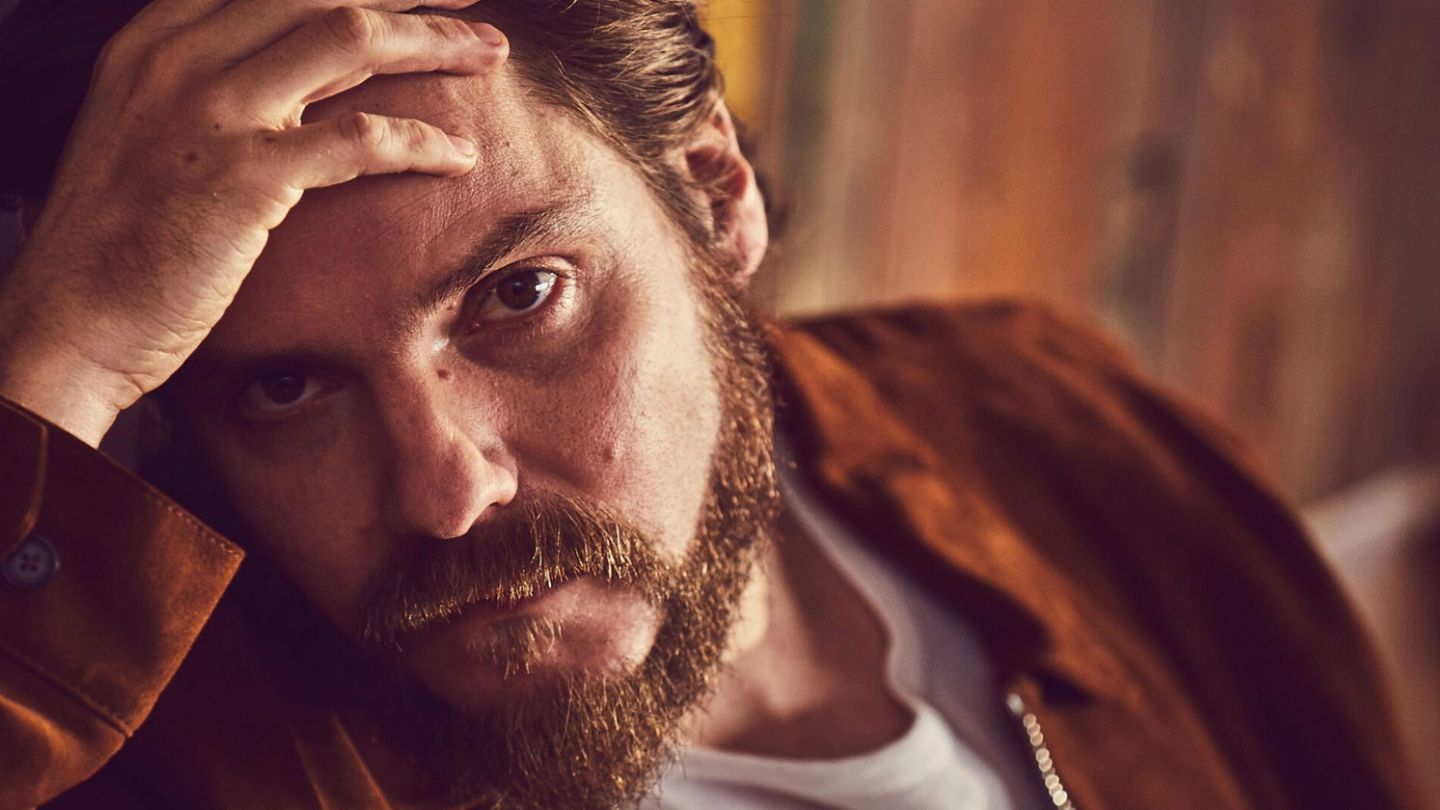
Words: Gentleman's Journal
The flamboyant world of casting in Hollywood has more in common with the global rise of nationalism than you might first think. Both enjoy nothing more than finding a box to put someone in and then keeping them firmly inside it for the rest of their life.
After all, when it comes to the film industry there are some actors who just seem too perfectly suited to act out the national myths of the states that claim them. Who else but Marion Cotillard could sing La Vie En Rose for France? Who but Hugh Grant could stutter for England and equally who but the American Julia Roberts could want to turn his excruciating Britishness into a special relationship?
When it comes to Daniel Brühl, 42 – the golden boy of German film – initially the stereotypical traits are all there. He’s punctual, polite and he talks modestly about his successful career. Performances like his uncanny imitation of Niki Lauda in Rush (2013), or his complex turn as the Avengers’ adversary in Marvel’s Captain America: Civil War (2016), have earned him the adulation of big studio producers and auteur directors alike. Having already achieved so much, and with so much still to achieve, he is easily the best choice to champion the new Germany that is now standing tall out of the debris of the Cold War.
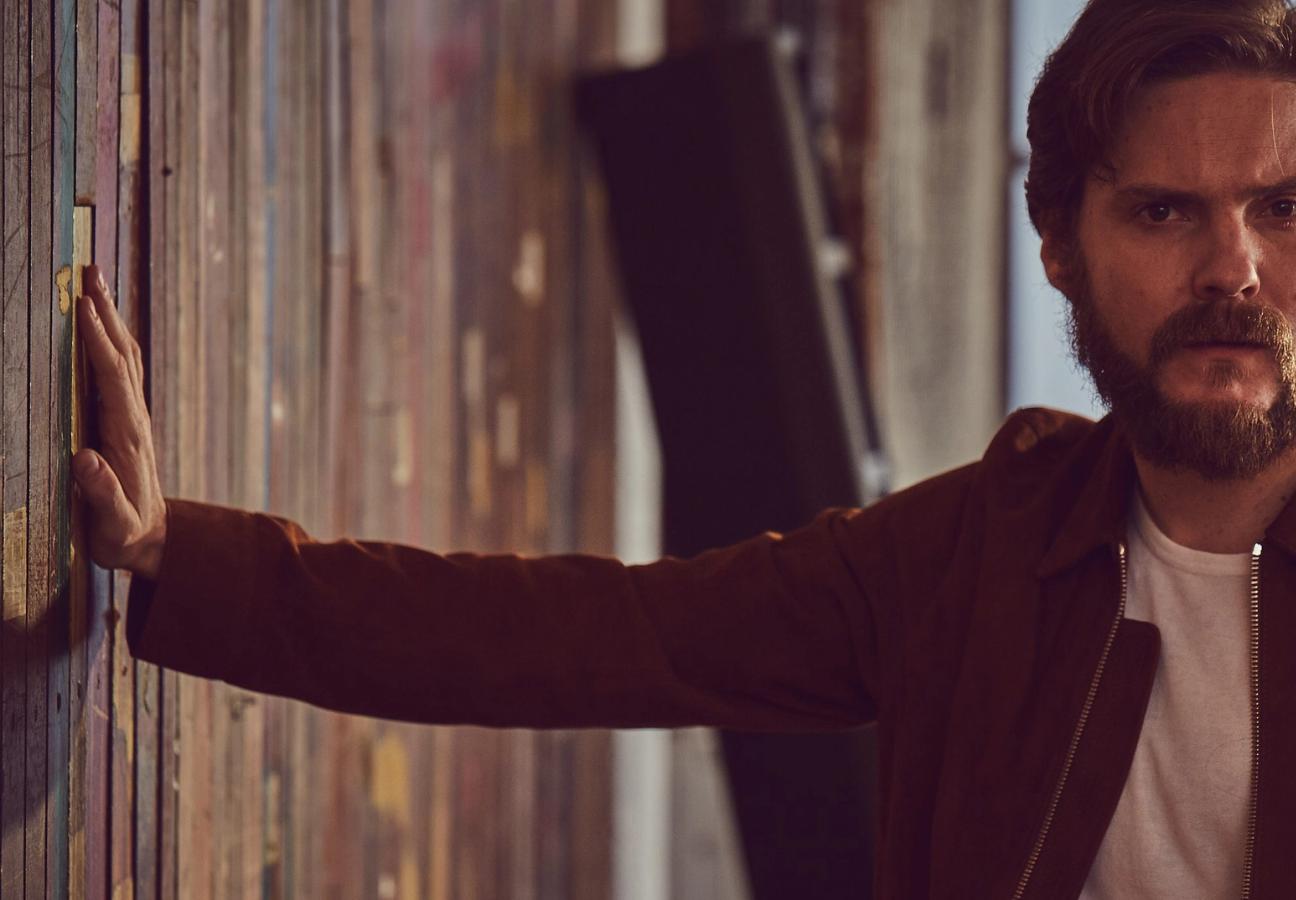
But then there is something a little small about making Daniel Brühl into ‘a German actor’. The truth is he’s far more than that. It might sound like just another Brexit-themed exaggeration, but let me assure you, Brühl is the very literal embodiment of the European Union.
The circumstances of our first meeting begin to show you just how genuinely European he is. For our interview Brühl has invited me to visit a restaurant he owns in the trendy Prenzlauer Berg district of Berlin. In Bar Gracia, named after a historic district in Barcelona in which Brühl spends a lot of time, he and his team of Spanish chefs serve up authentic tapas. As we are sitting down to start, Brühl explains that he has just come from the Berlinale International Film Festival where he was honoured by the French government, becoming part of the Ordre des Arts et des Lettres – a French Knight.
‘I’m a Chevalier now, which sounds pretty cool, but I don’t get a sword, a castle and a white horse,’ Brühl jokes. ‘It’s just a medal, but I was flattered and honoured that the French are still awarding them to foreigners and not just their own. It made me proud, but I also said jokingly to some of the French politicians: “Thank God I’m getting it now, because who knows what will happen if Marine [Le Pen] wins.” Who knows if a German like me would have got it?’
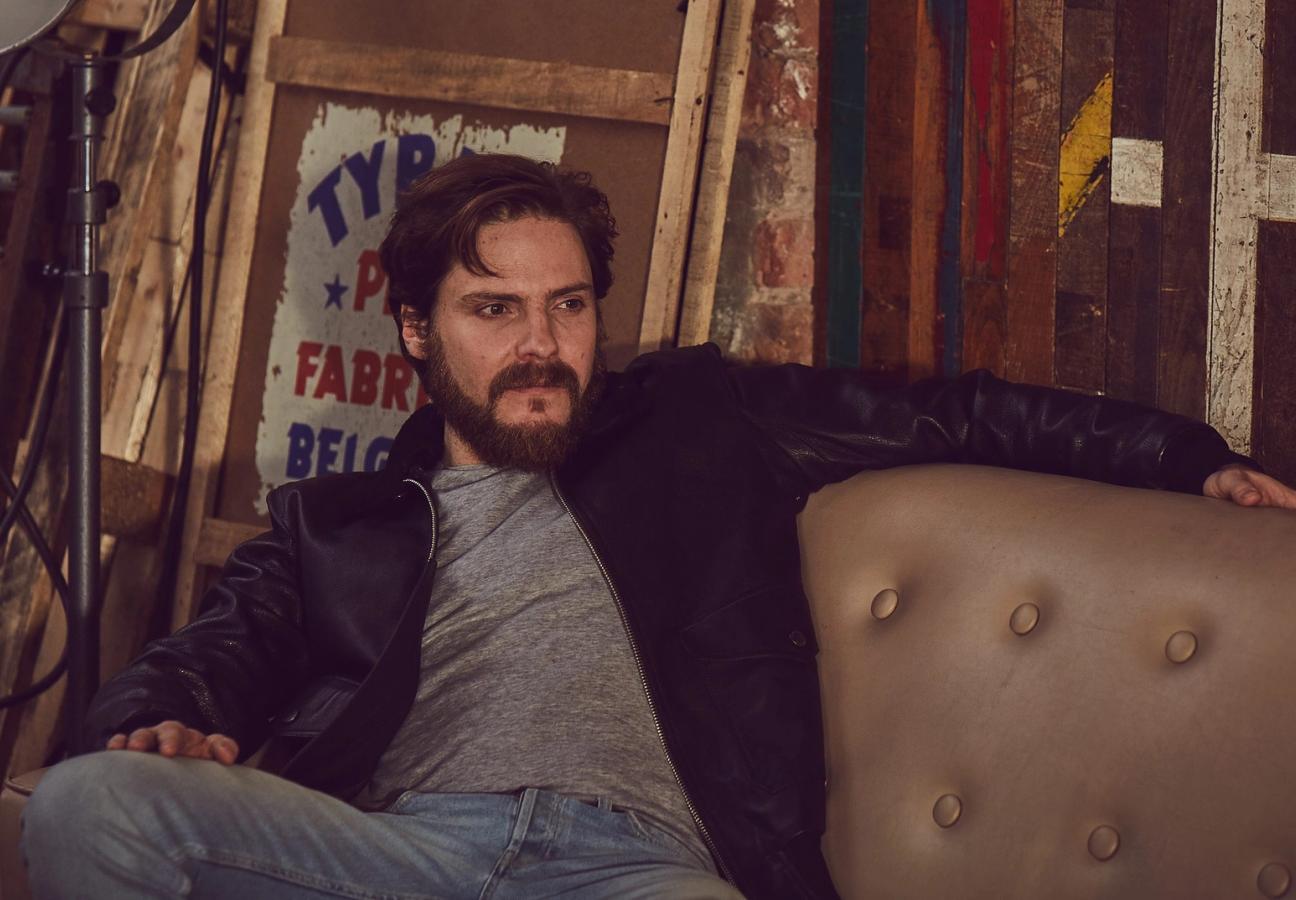
But Brühl isn’t really foreign to the French. ‘I actually did my speech in French and I only realised as I was talking that I feel very European because my family is very mixed up.’
This is an understatement. Brühl literally has European blood running through his veins. He attended school in Cologne but was born in Barcelona. ‘We had a strong tie to Spain and went there three to four times a year,’ he says. His mother, who is Spanish, ‘missed Spain so badly that we spent all of our holidays there. Even in Germany we always spoke Spanish, ate Spanish food, listened to Spanish music.’
"I’m a Chevalier now — but I don’t get a sword, a castle and a white horse..."
His European roots don’t stop there. ‘Growing up I was always around French family members,’ he says. ‘My two German uncles married two French women; one is from Paris, the other Toulouse. We grew up with a blend of languages and cultures and for that I thank my parents.’
At the ceremony making Brühl what he called a ‘German French knight’, he attempted to explain his Franco-German heritage by talking about his two French aunts. ‘The French audience just didn’t believe it,’ he says laughing. ‘They said: “Meh! You are an actor, you pretend. What next: do they both have the Frenchest names ever?”’ Actually, it turns out they’re both called Françoise.
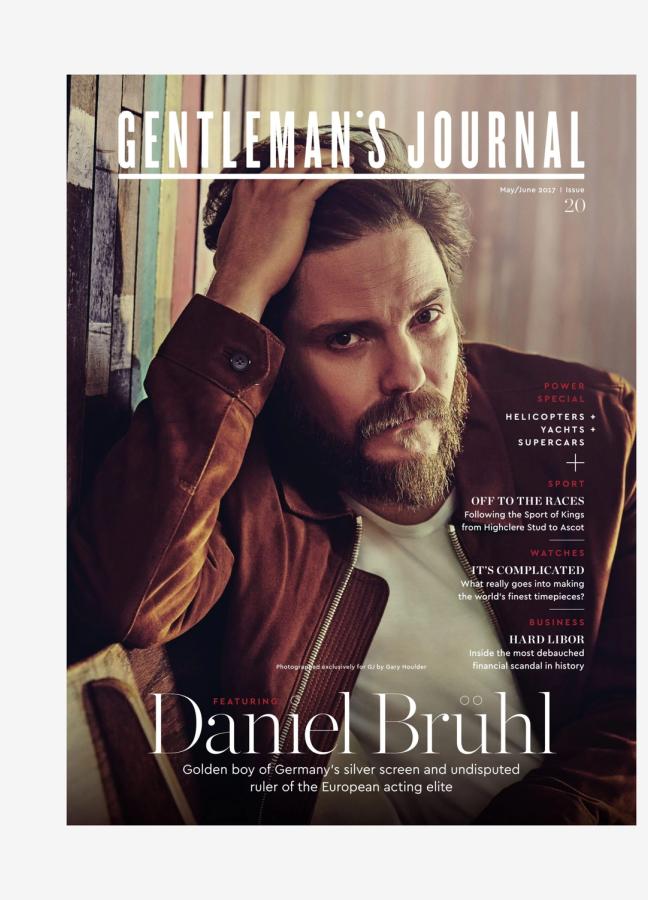
It would be all too easy to claim that Brühl’s inherent Europeanism is just a reflection of his Euro-family. Actually it shows he’s at the forefront of a new wave of globalist Europeans, children of the EU who simultaneously embrace and diminish the value of the nation state. When it comes to Brühl’s acting career, it’s this much more global outlook that has made him a part of numerous countries’ film industries, yet at the same time none in particular.
‘I’m a bit of a mismatch,’ he says. ‘I’m like everything: maybe sometimes it’s a bit of a disadvantage.’ He describes occasions in the past where he has been on the sharp end of Hollywood typecasting. ‘Very quickly you can become the man from outside, the foreigner. Suddenly you are just The German or Merkel’s guy. They say: “You don’t understand because you haven’t grown up here and you’re unaware of the sensitivities of the history.” I think everyone needs to just widen their scope a bit.’
Having appeared in more than 30 films since his breakthrough role in Quentin Tarantino’s Inglourious Basterds (2009), Brühl has cultivated something truly rare in Hollywood: credibility. Virtually every performance he has given has been regarded as a critical success. The result is that he is now widely considered to be one of the truly great character actors… even in spite of the conspicuously absent Oscar statuette, which for many is more a matter of when than it is if.
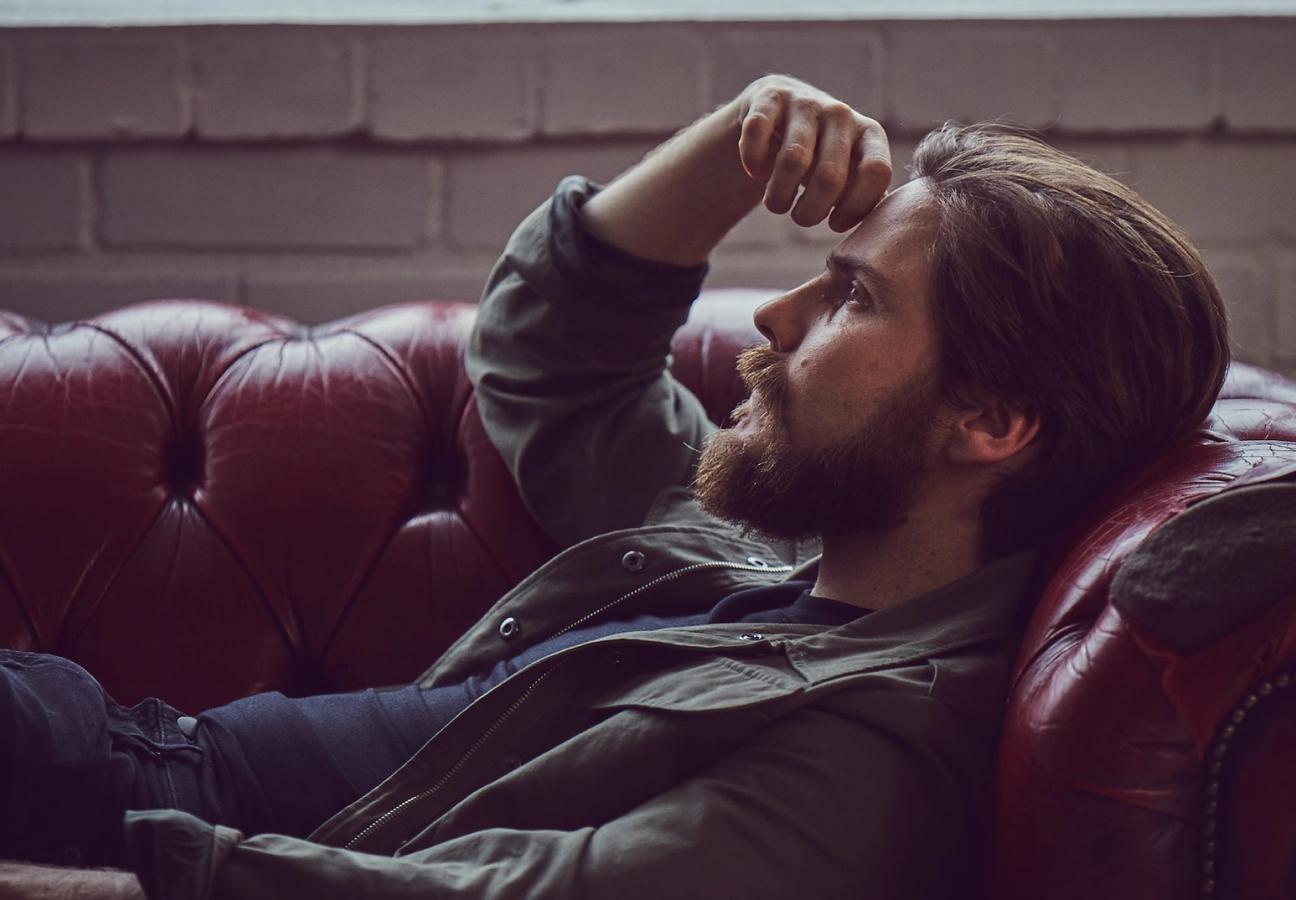
He explains what he thinks is the secret behind his success. ‘I think it’s important to find your niche, to find your place. There are so many incredible actors you should not try to attempt to compete with them. When I think of the British, for example, there’s a range of fantastic actors. When I read certain parts in scripts I’m sent I think of them doing it. Luckily there are opportunities for someone like me to play lots of different types of characters.’
True as this may be, in recent years he has become best-known for playing the villain. ‘You’re going to ask about being the bad guy?’ he says, smiling as he preempts the question. ‘It’s not too bad, it could be far worse. One of the most important things I had to try to make my agents understand was which parts I can never play. I’m very self-confident and I think I can do a lot, but I cannot play a Texan cowboy, you know? I just can’t.
‘So it’s funny because the villain thing just happened in the past few years. For a long time I was the good guy, especially in Germany. Since Good Bye, Lenin! in 2003, people have seen me as the kind son-in-law who helps old people to cross the street. It meant that I would only be given scripts to play the good guy parts. This is why I’m so happy with being able to work abroad. There was a time before Rush, before Inglourious Basterds, when I was thinking that in the long run I wouldn’t find my place here because I’m definitely wrong in most German films.’
This is what makes Brühl’s international casting so fascinating. ‘When it comes to different film cultures,’ he explains, ‘I’m very happy to be able to travel and change because each region’s industry sees me differently.’ In France, for example, he’s regarded as the romantic male lead, as he is in 2 Days in Paris (2007) opposite Julie Delpy.
Even more so in British and American films, Brühl plays parts that couldn’t be further from the good boy of Good Bye, Lenin!. It is still all too common for German actors to play one very particular type of character: Nazis.
"For a long time I was the good guy — especially in Germany..."
‘I did my Nazi parts but I’m very happy to say I’ve played a range of different villains now,’ Brühl says. ‘But it’s not about good or bad guys, I’m genuinely happy that there is a real variety between the villains. That’s what’s important to me as an actor. I’m glad that I don’t just have to be a goose-stepper, talking like ’zis and being awful.’
So how do you solve a problem like Nazi typecasting? ‘I’m cautious when it comes to that period because you have to be careful not to get put in that box. But if the story appeals to me, that’s the most important thing. But it’s still my country, and very often I learn about different chapters within my history and about my family. So I don’t care if people say: “He’s playing another Nazi”, because I’m not doing it in every film and if I think it’s worth it, I do it.
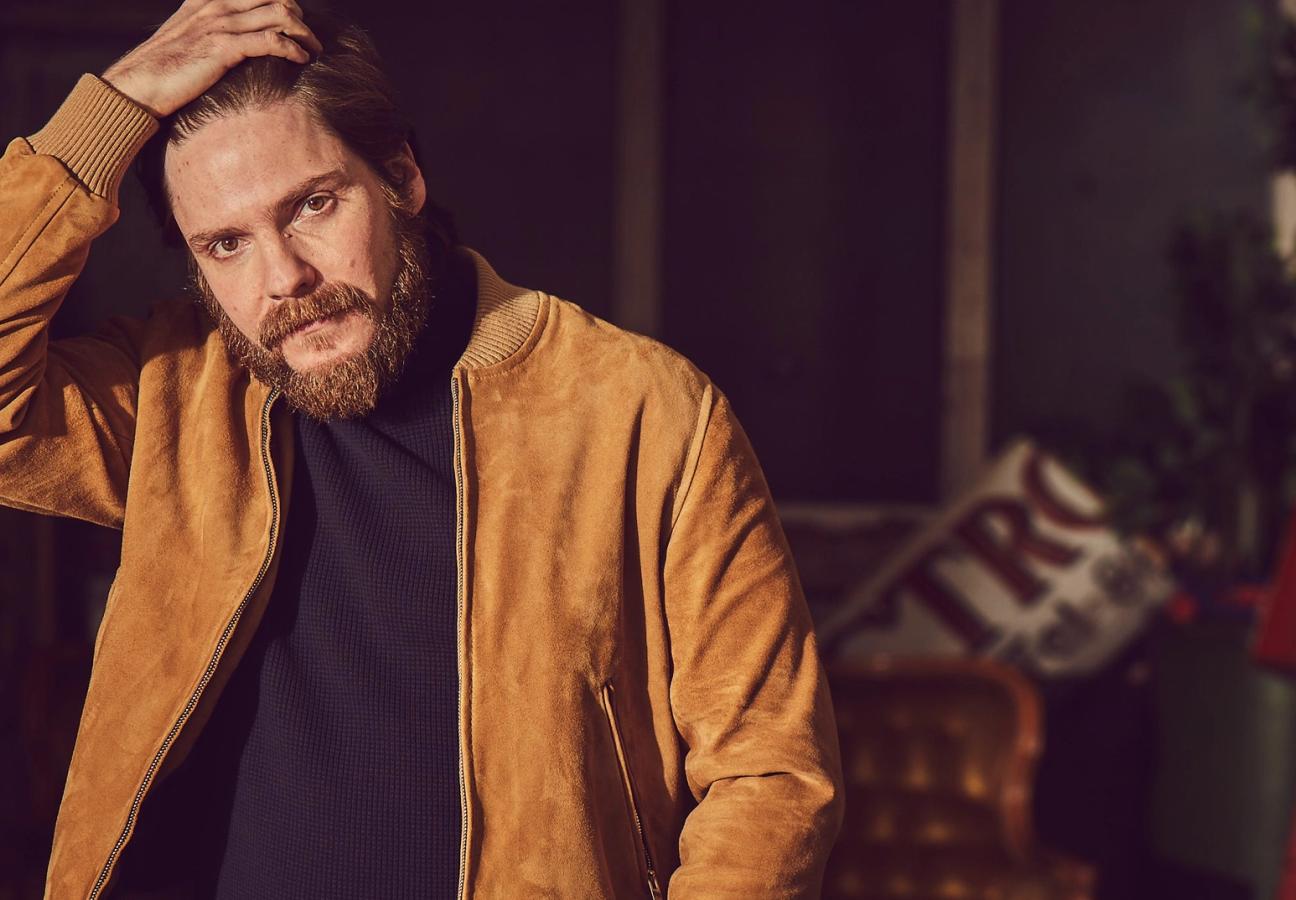
‘Every young person in my generation had the opportunity of talking to the last generation of people who actually were part of the Third Reich and who are now all dying. Our preoccupation with them comes from the fact we would all like to ask ourselves: “What would I have done under the same circumstances?”. In Germany, instead of going to join the army after school, you can do a social year, so I had these 15 elderly people I had to take care of, each with a fascinating story to tell.
‘I only dared to ask these sorts of delicate questions after a couple of months when I had a bit of confidence, and the reactions where very interesting. Some would block completely and not talk about it at all, others would open up. But nobody ever claimed to have known for certain about what was going on. They would all say: “We weren’t aware of the scale of the horror”, or “It was terrible and we were afraid, but we had no idea”.
‘I never met my grandfather and I don’t think there was anything truly terrible that he personally did,’ Brühl continues, ‘but let’s just say he got along with the regime.’ He adds: ‘I would have liked to have asked my own grandparents about the period and our family history, but I didn’t get the chance. So by these films and diving into that time again, I’m still learning a lot.’
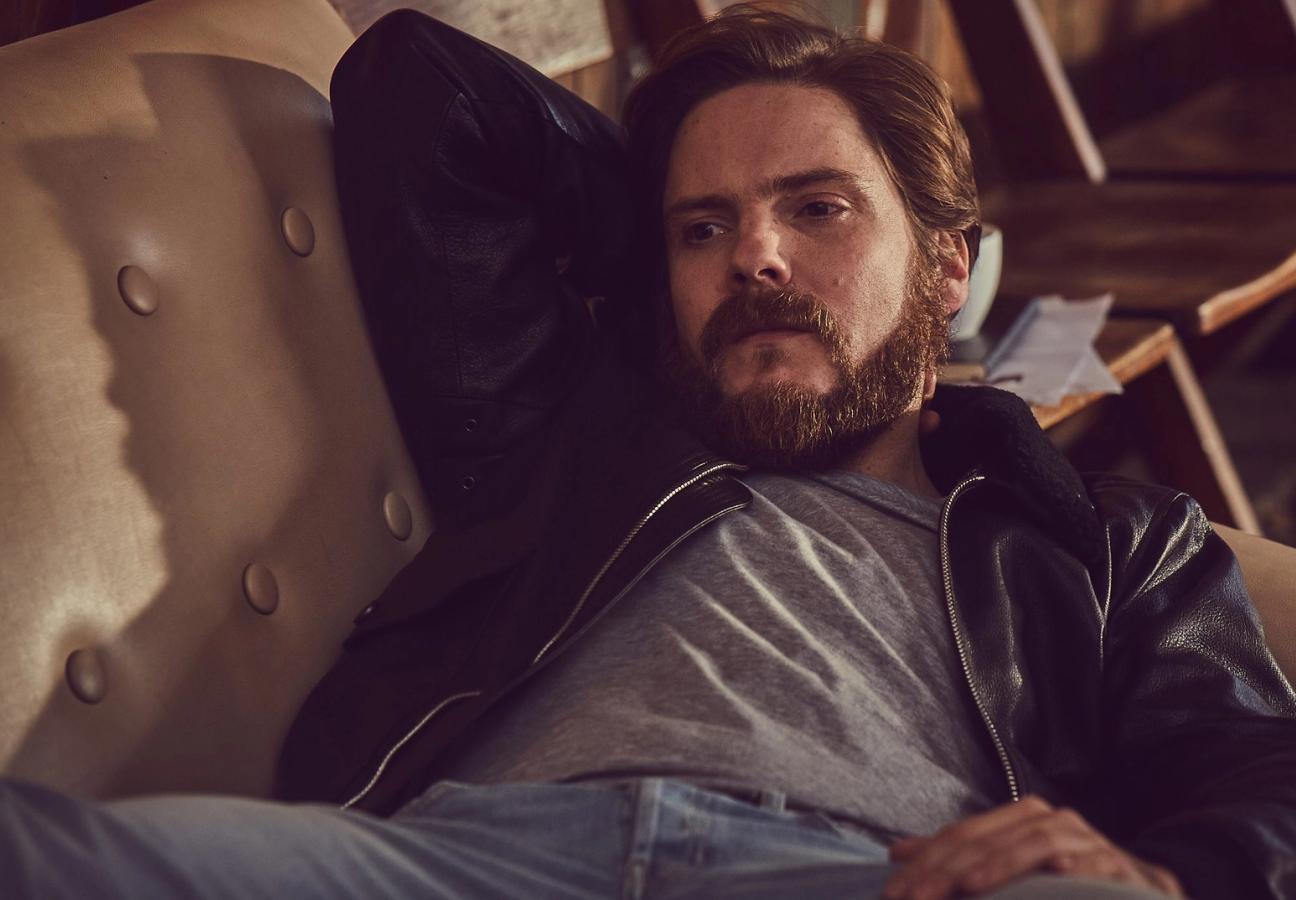
Brühl recently filmed The Zookeeper’s Wife, in which he is playing the infamous Nazi scientist Dr Lutz Heck. While Brühl jokingly refers to playing Nazis as a ‘bit of a German rite of passage’, he explains, ‘in this case I was attracted by the subject and by the peculiar, strange character of Heck’.
As Brühl says, when you talk to actors about playing villains most will repeat the same line: ‘You have to empathise with the character and understand his motives by getting into their mindset, even if they do intolerably cruel things.’ This is even more pronounced when it comes to playing Nazis. But Brühl isn’t like most actors. ‘In this case I can safely say I didn’t empathise at all,’ he jokes.,
‘I always felt a distance. I’d try to understand him but he’s such a weird character who starts out as this vaguely relatable, passionate scientist who was just very interested in nature and animals. But he slowly changes into an utter megalomanic, very much under the influence of the National Socialist Germanic vision and hatching his plans to recreate and rebreed extinct Germanic animals.
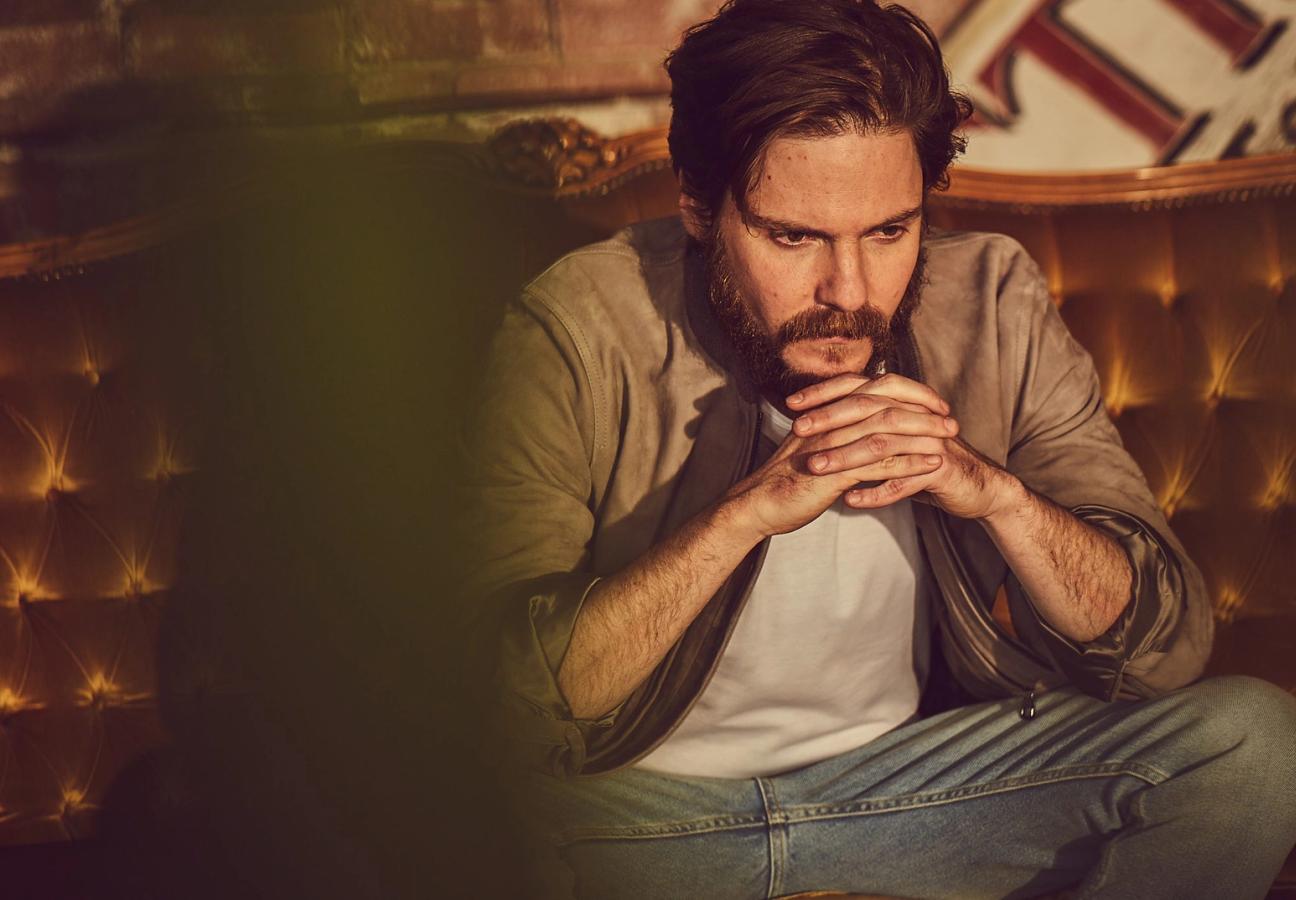
‘But his Nazi megalomania was just so silly, it makes me laugh. He became quite monstrous, but also fragile at the end of the film, falsely thinking that he was in charge and powerful when he wasn’t. But that’s how I see the Nazis generally: miserable idiots. Dangerous ones, but still.’
As we are joking about the fate of Brits and Germans alike to play the bad guys in American films, Brühl changes tack and explains that for him it doesn’t matter whether he’s playing a good guy or a bad guy. He explains that playing the Nazi should help to educate people and to tell stories about the past so that we can learn from them today.
‘It is a real shame because we should have learned from the past. Humanity has finally overcome that horrible chapter in our history, and it’s sad these thoughts are coming back, like a poison slowly growing all over Europe.’
This is one of the most interesting facets of the new type of Europeanism that Daniel Brühl best represents. Working as he does in a world dominated by Hollywood ideals and Americanisms, he is still remarkably un-American.
For example, though you might not know it, Brühl is the type of actor obsessed with telling stories about the issues that matter to him. A glance at his CV shows that his acting career has so far been dominated by his selection of issue-driven films, from playing Daniel Domscheit-Berg, Julian Assange’s fellow Wikileaks whistleblower in The Fifth Estate (2013), to appearing in the 2015 thriller The Colony, based on the worst atrocities of the infamous German-Chilean cult Colonia Dignidad.
Explaining his appetite for making films about issues, Brühl talks proudly about being interested in telling stories that matter. ‘I mean, I’m not Angelina Jolie,’ he jokes, ‘but I was raised with a political conscience and these are the issues that matter and interest me. That’s why I always like to get involved in these projects. It’s important that these stories are told and while I wouldn’t say it’s an obligation for all actors, I almost feel like it is for me. But there’s nothing wrong with pure escapist entertainment, which I also enjoy. I’m just interested in history and the consequences of it, analysing it, seeing the different perspectives and truths.’
This is Brühl’s job: making you see things from a different perspective. The job is the same whether he’s playing a villain taunting superheroes or a boy from East Germany.
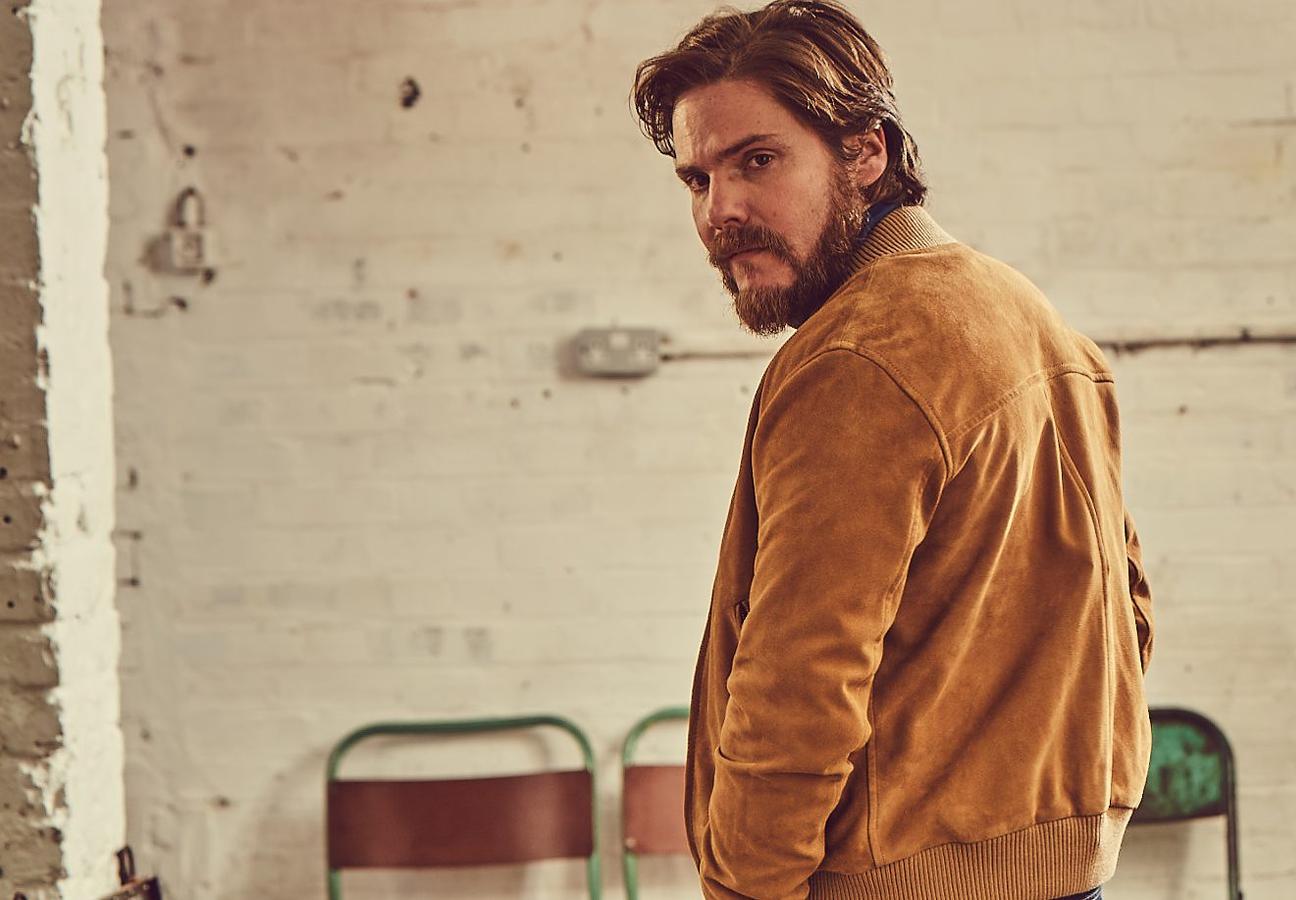
He explains this, referencing a film he has just finished shooting called Entebbe, which tells the story of the hijacking of a plane in Uganda by a group of Palestinian terrorists. This absolutely international story, Brühl believes, says a lot about our situation right now.
‘It’s good to refresh your memory about the chain links that brought us to where we are now,’ he says. ‘In some films you just take one side, but it was interesting to have an angle on the Palestinians, the Germans, on Israel, and Idi Amin in the midst of it all. Now we live in times when things are getting more and more prejudicial, more protective, with everybody wanting to keep his own garden safe and each country isolating itself, even within Europe.
‘We even have countries leaving our continent,’ he says suddenly, feigning seriousness, looking me dead in the eye and teasing me about Brexit. Not all of us can be as European as Daniel Brühl.
This article was taken from the Summer 2017 issue of Gentleman’s Journal. Read our latest cover interview, with Willem Dafoe, here…
Become a Gentleman’s Journal member. Find out more here.


